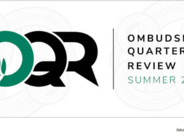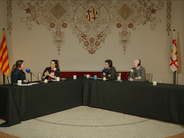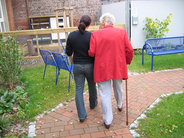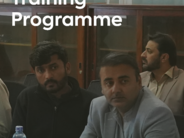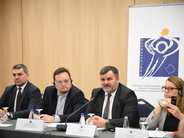Date of article: 27/02/2026
Daily News of: 27/02/2026
Country:  Italy
Italy
Author: National coordination of the Italian ombudsmen
Article language: it
È convocato per i giorni 25 e 26 marzo 2026 a Genova, presso il Consiglio regionale della Liguria (Via Fieschi, 15 – Sala riunioni XI piano), il Coordinamento nazionale dei Difensori civici delle Regioni e delle Province Autonome italiane.
I lavori si apriranno mercoledì 25 marzo alle ore 14:30 alla presenza del Presidente del Consiglio regionale della Liguria, On.le Stefano Balleari, che porterà il proprio saluto istituzionale.
Nel corso della riunione saranno affrontati temi centrali per il rafforzamento e l’armonizzazione della difesa civica in Italia, tra cui:
- l’approvazione del verbale della seduta precedente;
- l’approfondimento delle proposte di legge da sottoporre alla Commissione Affari Costituzionali della Camera dei Deputati, con particolare riferimento all’adeguamento e all’armonizzazione delle funzioni dei Difensori civici regionali;
- la ricognizione delle principali criticità aperte;
- le questioni irrisolte in materia di accesso e l’interlocuzione con la CADA;
- il rafforzamento del ruolo della difesa civica a livello nazionale in vista della Conferenza di maggio a Roma;
- la mancata istituzione del Difensore civico nelle Regioni Puglia e Sicilia;
- il calendario delle prossime riunioni.
All’incontro prenderà parte anche una delegazione di Difensori civici provenienti dalla Serbia, interessata ad approfondire il modello organizzativo e operativo del Coordinamento nazionale italiano, oggetto di studio ai fini di una possibile replicabilità nel proprio ordinamento.
La giornata di giovedì 26 marzo, a partire dalle ore 10:00, sarà dedicata al workshop tematico dal titolo:
“Diritti, innovazione e istituzioni: la difesa civica e la Pubblica Amministrazione nell’era digitale”, con la partecipazione di studiosi ed esperti del settore, oltre ai Difensori civici regionali.
L’iniziativa rappresenta un momento di confronto qualificato sulle trasformazioni della pubblica amministrazione e sulle nuove sfide poste dalla digitalizzazione, dall’innovazione tecnologica e dalla crescente complessità normativa.
«Il Coordinamento nazionale – dichiara il Presidente, Dott. Marino Fardelli – non è soltanto un luogo di raccordo tra le diverse esperienze regionali, ma uno spazio di elaborazione istituzionale e di proposta normativa. In un tempo in cui la pubblica amministrazione è chiamata a innovare profondamente processi e servizi, la difesa civica deve rafforzare il proprio ruolo di garanzia, prossimità e tutela effettiva dei diritti dei cittadini.
Genova sarà un momento di lavoro concreto, di confronto internazionale e di rilancio della nostra funzione, con l’obiettivo di costruire una difesa civica sempre più autorevole, coordinata e capace di rispondere alle nuove fragilità sociali e digitali».
 Spain
- Catalonia, Barcelona
Spain
- Catalonia, Barcelona


